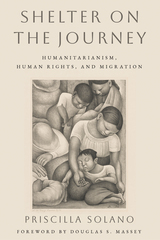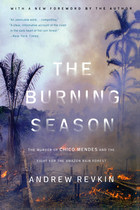
"In the rain forests of the western Amazon," writes author Andrew Revkin, "the threat of violent death hangs in the air like mist after a tropical rain. It is simply a part of the ecosystem, just like the scorpions and snakes cached in the leafy canopy that floats over the forest floor like a seamless green circus tent."
Violent death came to Chico Mendes in the Amazon rain forest on December 22, 1988. A labor and environmental activist, Mendes was gunned down by powerful ranchers for organizing resistance to the wholesale burning of the forest. He was a target because he had convinced the government to take back land ranchers had stolen at gunpoint or through graft and then to transform it into "extractive reserves," set aside for the sustainable production of rubber, nuts, and other goods harvested from the living forest.
This was not just a local land battle on a remote frontier. Mendes had invented a kind of reverse globalization, creating alliances between his grassroots campaign and the global environmental movement. Some 500 similar killings had gone unprosecuted, but this case would be different. Under international pressure, for the first time Brazilian officials were forced to seek, capture, and try not only an Amazon gunman but the person who ordered the killing.
In this reissue of the environmental classic The Burning Season, with a new introduction by the author, Andrew Revkin artfully interweaves the moving story of Mendes's struggle with the broader natural and human history of the world's largest tropical rain forest. "It became clear," writes Revkin, acclaimed science reporter for The New York Times, "that the murder was a microcosm of the larger crime: the unbridled destruction of the last great reservoir of biological diversity on Earth." In his life and untimely death, Mendes forever altered the course of development in the Amazon, and he has since become a model for environmental campaigners everywhere.
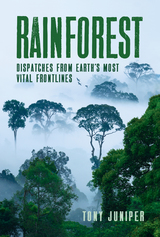
In Rainforest, Tony Juniper draws upon decades of work in rainforest conservation. He brings readers along on his journeys, from the thriving forests of Costa Rica to Indonesia, where palm oil plantations have supplanted much of the former rainforest. Despite many ominous trends, Juniper sees hope for rainforests and those who rely upon them, thanks to developments like new international agreements, corporate deforestation policies, and movements from local and Indigenous communities.
As climate change intensifies, we have already begun to see the effects of rainforest destruction on the planet at large. Rainforest provides a detailed and wide-ranging look at the health and future of these vital ecosystems. Throughout this evocative book, Juniper argues that in saving rainforests, we save ourselves, too.
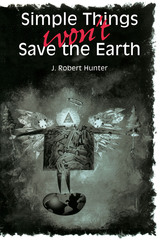
We drive cars with "Save the Whales" bumper stickers, buy aerosol sprays that advertise "no chlorofluorocarbons," and wear T-shirts made from organically grown cotton. All of these "earth friendly" choices and products convince us that we are "thinking globally, acting locally" and saving the planet. But are we really?
In this provocative book, J. Robert Hunter asserts that using catchy slogans and symbols to sell the public on environmental conservation is ineffective, misleading, and even dangerous. Debunking the Fifty Simple Things You Can Do to Save the Earth approach, Hunter shows that there are no simple solutions to major environmental problems such as species extinction, ozone depletion, global warming, pollution, and non-renewable resource consumption.
The use of slogans and symbols, Hunter argues, simply gives the public a false sense that "someone" is solving the environmental crisis—while it remains as serious now as when the environmental movement began. Writing in plain yet passionate prose for general readers, he here opens a national debate on what is really required to preserve the earth as a habitat for the human species.
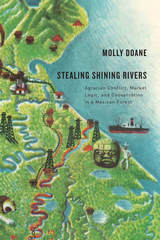
What happens to indigenous people when their homelands are declared by well-intentioned outsiders to be precious environmental habitats? In this revelatory book, Molly Doane describes how a rain forest in Mexico’s southern state of Oaxaca was appropriated and redefined by environmentalists who initially wanted to conserve its biodiversity. Her case study approach shows that good intentions are not always enough to produce results that benefit both a habitat and its many different types of inhabitants.
Doane begins by showing how Chimalapas—translated as “shining rivers”—has been “produced” in various ways over time, from a worthless wasteland to a priceless asset. Focusing on a series of environmental projects that operated between 1990 and 2008, she reveals that environmentalists attempted to recast agrarian disputes—which actually stemmed from government-supported corporate incursions into community lands and from unequal land redistribution—as environmental problems.
Doane focuses in particular on the attempt throughout the 1990s to establish a “Campesino Ecological Reserve” in Chimalapas. Supported by major grants from the World Wildlife Foundation (WWF), this effort to foster and merge agrarian and environmental interests was ultimately unsuccessful because it was seen as politically threatening by the state. By 2000, the Mexican government had convinced the WWF to redirect its conservation monies to the state government and its agencies.
The WWF eventually abandoned attempts to establish an “enclosure” nature reserve in the region or to gain community acceptance for conservation. Instead, working from a new market-based model of conservation, the WWF began paying cash to individuals for “environmental services” such as reforestation and environmental monitoring.
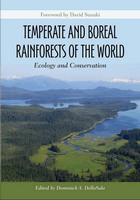
Temperate and Boreal Rainforests of the World brings together leading scientists from around the world to describe the ecology and conservation of these lesser-known rainforests in an attempt to place them on par with tropical rainforests in conservation efforts. The book
- summarizes major scientific findings
- presents new computer models that were used to standardize rainforest definitions
- identifies regions previously not widely recognized as rainforest
- provides the latest estimates on rainforest extent and degree of protection
- explores conservation strategies
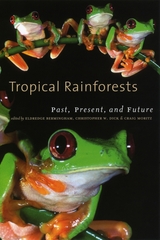
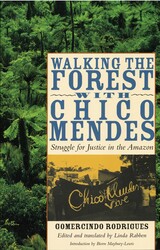
A close associate of Chico Mendes, Gomercindo Rodrigues witnessed the struggle between Brazil's rubber tappers and local ranchers—a struggle that led to the murder of Mendes. Rodrigues's memoir of his years with Mendes has never before been translated into English from the Portuguese. Now, Walking the Forest with Chico Mendes makes this important work available to new audiences, capturing the events and trends that shaped the lives of both men and the fragile system of public security and justice within which they lived and worked.
In a rare primary account of the celebrated labor organizer, Rodrigues chronicles Mendes's innovative proposals as the Amazon faced wholesale deforestation. As a labor unionist and an environmentalist, Mendes believed that rain forests could be preserved without ruining the lives of workers, and that destroying forests to make way for cattle pastures threatened humanity in the long run. Walking the Forest with Chico Mendes also brings to light the unexplained and uninvestigated events surrounding Mendes's murder.
Although many historians have written about the plantation systems of nineteenth-century Brazil, few eyewitnesses have captured the rich rural history of the twentieth century with such an intricate knowledge of history and folklore as Rodrigues.
READERS
Browse our collection.
PUBLISHERS
See BiblioVault's publisher services.
STUDENT SERVICES
Files for college accessibility offices.
UChicago Accessibility Resources
home | accessibility | search | about | contact us
BiblioVault ® 2001 - 2024
The University of Chicago Press


